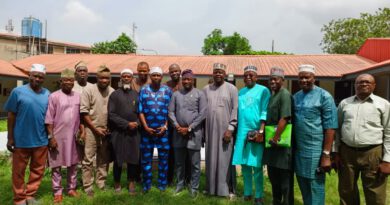The Geo-Politics Of Nigeria’s Insecurity
By Dakuku Peterside
In the past ten years, the South-East and North-East geopolitical zones, more than other geopolitical zones, have been sites of experiments on insecurity and militia reign. Either terrorists, kidnappers, or militias were testing the will of the government to see how long it would take for a determined state to take charge, or it was just a playground of absurdity. The result is known. Political leadership and the elite failed the people irredeemably. Admittedly, insecurity on a national scale abhors partitioning. The factors at play in a place may owe their origins to factors emanating from a totally different region, but there is good reason to focus on the two zones.
In the two zones, the persistent violence had three distinct features: first, the impunity with which Boko Haram and its affiliates, and unknown gunmen have been allowed to operate; second, the helplessness of the residents; and third, the seeming indifference of the political elite. These defining features fuel existential anger among the people.
Somehow, lately, it appears governors from both regions have found their mojo and courage to rise to the challenge, and that deserves examination and commendation. The source of this new energy and focus is unknown. One thing is clear: the federal government has done its best to redeem the situation, but its best is not good enough. The federal government just did not know how to deal with the situation beyond a military-centric option, and the military deserves commendation for the successes they have recorded so far. Both regions have never been safe places for residents and businesses.
The connection between concrete development and the decimation of militia-led insecurity and related complications has long been established as a theoretical and practical fact. This has been lacking over the years in both regions. Save for a few cases, there has been a substantial disconnect between the people’s development aspirations and the area’s government. Actual development, especially education, helps fight violence, terrorism, and its like. Lately, we have begun to see development programs in a handful of states in both regions, which impacts insecurity in the area.
Besides, the people, too, are beginning to resist the domination of their areas by these non-state actors. Community leaders are now more involved in intelligence gathering. The locals have started organising themselves into quasi-security formations and are beginning to be the first resistance point even before the organised formal security apparatus of the state is involved. This calls for more synergy between the informal and formal security structures and systems in these areas for better operations.
Also, the people’s sensitisation to the fact that these non-state actors purportedly fighting for unknown causes are not doing so for the collective interest of the locals. Instead, the locals in their various communities are the casualties of the needless violence and murderous orgies meted out on them. This new consciousness must be harnessed efficiently to the advantage of the communities. The fight against insecurity is becoming local, and interestingly, the public sphere and media framing the conflicts as banditry and criminality rather than a fight for freedom, self-determination, or religious zealotry is helping matters. I sincerely think that even the perpetrators recognise the impact of this new approach and have turned to symbols of the state for their attacks to legitimise their acts as actions against the state when they are not.
There is a temptation to believe that the insecurity in the northeast and southeast is a scam and a cash cow for interested parties due to its persistence and nature. Additionally, there is a general belief that the security establishment deployed to secure the southeast has found collaboration with criminals and conflict merchants to exploit the separatist agitation. In the northeast, we also find that Sahelian jihadist insurgency had been increased by socioeconomic pressures from the most impoverished states in the nation.
The southeast represents a false agitation for self-determination, whereas the northeast’s insurgency is neither ideological nor religious. Both cases involve ordinary criminals acting as agitators and religious zealots. The criminal colonisation of both regions for an extended period is horrible and disastrous. The political and traditional establishments of both geopolitical zones, led by the governors and National Assembly members, must band together, seek support from wherever possible, and bring this tragedy, which is economically strangulating and socially demoralising, to a stop. Tomorrow is too late.




